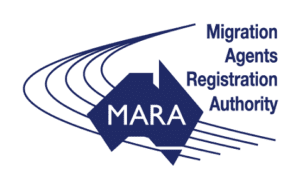Introduction Ontario and British Columbia (BC) are Canada’s top two jurisdictions for luring talented immigrants with their own Provincial Nominee Programs (PNPs). Both provinces have improved their PNP pathways to draw in foreign talent for in-demand jobs as Canada works to reach its aggressive immigration goals. In addition to their booming economy, skilled immigrants are choosing British Columbia and Ontario because of their diverse populations, progressive politics, and abundance of career options. A closer look at the factors that make these two provinces unique in terms of skilled immigration and what makes their PNP programs so appealing in 2024 is provided here. British Columbia A route to permanent residence (PR) in British Columbia is provided to recent graduates from qualified Canadian post-secondary institutions through the Skilled Worker, International Graduate stream. Candidates must have a full-time work offer from a province-based employer and have earned a degree, diploma, or certificate within the last three years in order to be eligible. Training, Education, Experience, and Responsibilities (TEER) categories 1, 2, or 3 of the National Occupation Classification (NOC) must apply to the position. The International Graduate stream is an improved provincial immigration stream that also offers an Express Entry British Columbia (EEBC) alternative. In line with Canada’s federal Express Entry system, enhanced provincial pathways give federal pool candidates the chance to be nominated by a province, which results in an extra 600 CRS Score. Priority Applicants for British Columbia PNP Draw In Canada’s largest job market, Ontario provides talented immigrants with unparalleled career options. The OINP offers multiple pathways for professionals in high-demand occupations, including periodic draws for skilled crafts and technology. For individuals seeking to progress their careers in industries such as IT, engineering, finance, and healthcare, Ontario is a desirable destination due to its broad economy and robust support for skilled immigration. Tech Occupations Healthcare Occupations Child Care Occupations Including, University professors, Veterinarians Ontario In Canada’s largest job market, Ontario provides talented immigrants with unparalleled career options. The OINP offers multiple pathways for professionals in high-demand occupations, including periodic draws for skilled crafts and technology. For individuals seeking to progress their careers in industries such as IT, engineering, finance, and healthcare, Ontario is a desirable destination due to its broad economy and robust support for skilled immigration. The Ontario provincial government offers qualified foreign workers who meet the requirements for skilled job experience, education, and language competence (in both English and French) the opportunity to be nominated for permanent residency in Canada under the French Speaking Skilled Worker stream. Before submitting an online nomination application, candidates must acquire a NOI from Ontario and have a current Express Entry profile in order to be eligible. It should be noted that this stream has been improved to conform to the Express Entry scheme. Key Insights and Changes in British Columbia and Ontario PNP Program 2024 Both British Columbia and Ontario made the following adjustments in 2024 to improve their PNPs’ responsiveness to labor market demands and expedite the immigration application process for candidates: Increased PNP Allocations: Both provinces are now able to nominate more skilled immigrants because they have been given larger quotas for PNP nominations. Expansion of In-Demand Occupations: More skilled trades, healthcare, and technology-related categories have been added to the list of qualified occupations, especially in Ontario. Improved Tech Pathways: Both British Columbia and Ontario have improved their tech pathways; Ontario’s Human Capital Priorities stream now more regularly targets tech occupations, while BC concentrates on weekly tech draws. Emphasis on Regional Development: While BC has started programs to entice talented immigrants to relocate in areas outside of Vancouver, Ontario has stepped up efforts to draw immigrants to smaller villages and areas outside of Toronto. British Columbia and Ontario – A Bright future for the Skilled Immigrants With each province modifying its PNP streams to satisfy labor market demands, British Columbia and Ontario remain desirable locations for skilled immigrants. These two provinces continue to be excellent centers for professional development and quality of life in 2024, providing routes to permanent residency via well-designed PNP programs. BC and Ontario are attractive destinations for talented immigrants due to their robust economies, creative policies, and job market demands. In order to assure a bright future in Canada, applicants can make an informed decision by being aware of the qualifications and advantages of each province’s PNP.
Home – Best Canada & Australia Immigration Consultant in Dubai
Month: November 2024
Everything you need to know about Comprehensive Ranking System (CRS) Express Entry
Introduction Every year, thousands of skilled professionals rely on Canada’s Express Entry system to obtain permanent residency (PR). The Comprehensive Ranking System (CRS), which is the brains behind this method, assigns scores to applicants according to criteria like age, education, employment history, and language ability. You can get closer to realizing your Canadian goal by comprehending and raising your CRS score! Everything you require to understand the CRS, including how it operates and how to raise your score and increase your chances of being invited to apply (ITA) for permanent residence, is covered in this complete guide. Comprehensive Ranking System (CRS) In order to determine a candidate’s likelihood of succeeding in the Canadian economy, the CRS considers a number of important elements, including age, education, work experience, language competence, and other characteristics. When Express Entry lotteries are held, a candidate’s chances of receiving an ITA increase with their CRS score. The CRS is not only a haphazard collection of figures; it has been meticulously calibrated to assist the Canadian government in giving preference to candidates who would successfully contribute to the country’s economy and successfully integrate into society. Knowing the CRS system is essential if you want to optimize your score, as it decides whether you are asked to apply for permanent residence in Canada. How to calculate your CRS Score? The personal qualities of the candidate that may affect their financial performance in Canada are the main emphasis of this section. These elements consist of: Age: Applicants between the ages of 20 and 29 receive the most points, with younger applicants receiving more. Education: Higher education levels earn more points, with points being given for everything from high school degrees to PhDs. Language Proficiency: Candidates take either an English or French language proficiency test. Reading, writing, speaking, and listening language scores are calculated using the Canadian Language Benchmark (CLB). Canadian job Experience: You can earn extra points if you have prior job experience in Canada. Your spouse or common-law partner may also have an impact on your CRS score. Points can be given according to your spouse’s employment experience, education, and language proficiency in Canada. Couples can use this to their most advantage in order to improve their joint Express Entry pool score. The term “skill transferability” describes how your education, professional background, and language proficiency affect your score. For example, you can get extra points if you have a post-secondary degree and strong language skills. Candidates with flexible talents that will enable them to thrive in Canada’s labor market are encouraged by this area. How to improve your CRS Score? Receiving an offer of employment from a Canadian company can boost your score by 200 points. Even though it’s a difficult choice, if you have contacts or work in a field that is in demand, it can be worth looking into. Getting more years of work experience can improve your score if you have less than three years, particularly if you can do it in Canada. Pursuing further education, such as going from a bachelor’s to a master’s degree, can greatly raise your CRS score if you have the time and means. Your score may be impacted by your spouse’s education, language proficiency, and Canadian work experience if they are traveling with you. You can also raise your score by improving your spouse’s educational background or language skills Key Strategies You can increase your CRS score if you have a well-defined plan. Think about studying for your language exam, looking into PNPs, and updating your profile as you acquire additional education or work experience. You may remain proactive during the application process by being aware of Express Entry trends and comprehending the CRS. Conclusion You can increase your CRS score if you have a well-defined plan. Think about studying for your language exam, looking into PNPs, and updating your profile as you acquire additional education or work experience. You may remain proactive during the application process by being aware of Express Entry trends and comprehending the CRS. The foundation of Canada’s Express Entry program is the Comprehensive Ranking System, which chooses which candidates get the coveted Invitation to Apply for Permanent Residence in Canada. Knowing the CRS can help you customize your profile to optimize your score, increase your prospects, and position yourself for a smooth transition to Canada. With a great CRS score, your trip to Canada can be closer than you think. Canada is still committed to accepting skilled immigrants. Get ready now!
Recent News
Hidden Gems in the United States;
Exploring the landmarks in the United
Is Schengen visa worth it for
Categories
- Australia
- Australia immigration
- Australia Immigration Services
- Australia Perfect Place To Migrate
- Australia PR Consultant AbuDhabi
- Australia Skilled Immigration
- Australia visit visa
- Australia work permit from Dubai
- Australian immigration
- Basic Requirements For Getting A Canada Skilled Immigration Visa
- Best Immigration Consultants in Dubai
- Business
- Canada
- Canada Best Country To Settle
- Canada Express Entry Programe
- canada imigration
- Canada immigration consultants in Dubai
- Canada immigration from Dubai
- Canada PR
- Canada PR from Dubai
- Canada Student Visa
- canada working visa
- Canadian consultancy Services in Dubai
- Express Entry Program
- Express Entry Program in Canada
- How To Apply For Australia PR
- immigration consultancy dubai
- immigration rules in Canada
- Migrate to Canada from Dubai
- Schengen Visa
- student visa
- study in australia
- UAE TO CANADA IMMigration
- Uncategorized
- United States
- Visit Visa
- Work Permit
Tags
Call us anytime during business hours:
Mon-Sun: 10:00 AM to 7:00 PM
Email Us info@tvgmigration.com
IN PARTNERSHIP WITH

REGISTERED WITH IRCC & MARA


Opening Hours
Call us anytime during business hours:
Mon-Sun: 10:00 AM to 7:00 PM
Email Us
info@tvgmigration.com
In partnership with


Registered with IRCC
![]()

©2024. TVG Migration DMCC Copyright | All rights reserved by The Virmani Group


